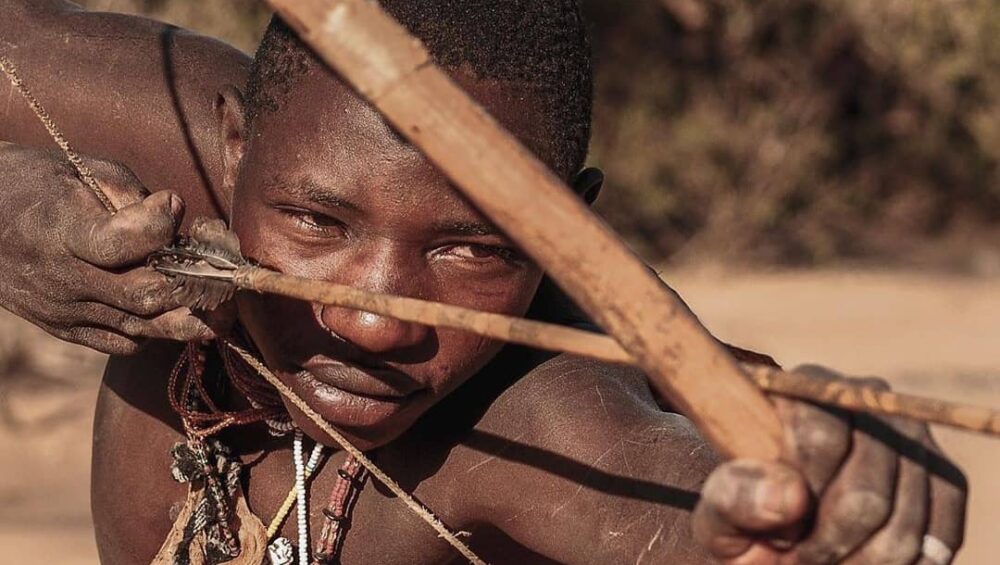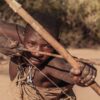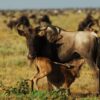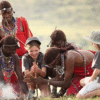The first blush of dawn paints the Tanzanian bush in hues of soft gold and dusty rose. The air, still cool from the night, carries the earthy scent of dry grass and distant woodsmoke. This isn’t your typical game drive. Today, there are no rumbling engines, no open-top jeeps. Instead, our feet tread silently on the well-worn paths, guided by the keen eyes and quiet confidence of the Hadzabe men.
Joining a Hadzabe hunt is like stepping back millennia, a visceral immersion into a way of life intricately woven with the rhythms of the natural world. Our guides, their lean frames moving with an effortless grace honed by generations of tracking, carry lightweight bows crafted from sturdy branches and quivers filled with arrows tipped with poison extracted from local plants. These aren’t relics; they are the tools of survival, extensions of their senses in this ancient dance between hunter and hunted.
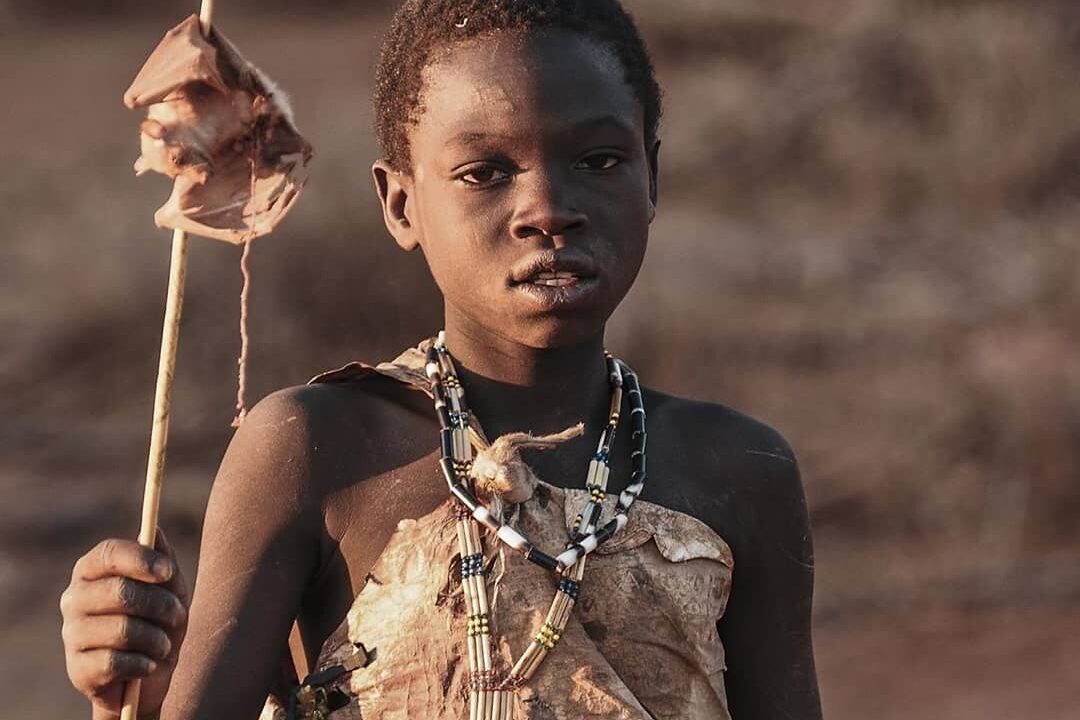
The morning unfolds with a hushed intensity. Our Hadzabe companions communicate in soft clicks and whistles, their voices blending seamlessly with the chirping of awakening birds. They point out subtle signs invisible to our untrained eyes – the faint impression of a hoof in the dust, a broken twig, the direction of the wind carrying a particular scent. We learn that every detail of the bush speaks a language they have mastered since childhood.
Their hunting techniques are a testament to their deep understanding of animal behavior. They move with a stealth that is both mesmerizing and humbling, utilizing natural cover, mimicking animal calls, and patiently waiting for the opportune moment. There’s no rush, no frantic pursuit, but a calm, focused connection with the environment. We witness their incredible ability to identify animal tracks, discerning not just the species, but also its size, sex, and how recently it passed. It’s a masterclass in natural observation.
As we move deeper into the bush, the purpose of the hunt becomes clear. It’s not a sport, but a necessity. The animals they seek – perhaps a dik-dik, a guinea fowl, or a bushbuck – will provide sustenance for their families. There’s a profound respect for the animals they hunt, a recognition of their vital role in the ecosystem and in their own survival. Nothing is wasted.
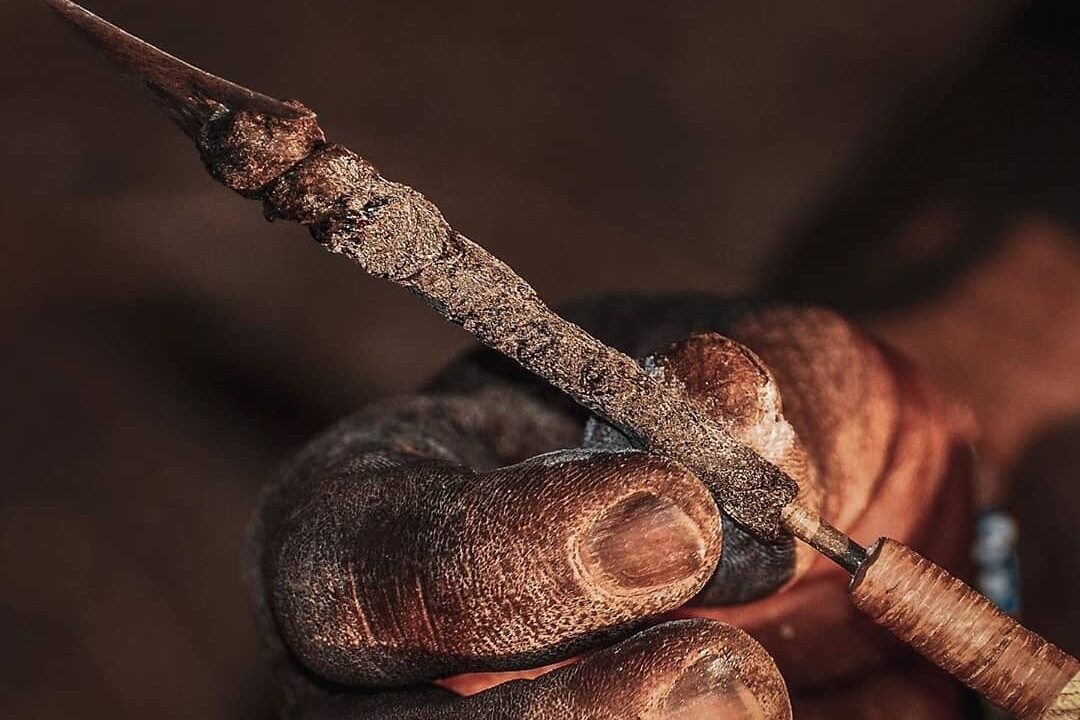
The hunt is punctuated by moments of intense focus. A sudden stillness descends as a duiker is spotted grazing in the distance. The Hadzabe hunters move with the fluidity of shadows, their bodies low to the ground, using every bush and termite mound as cover. The tension is palpable, a primal energy connecting us to the ancient pursuit. Whether the hunt is successful or not, the experience is deeply enriching. It offers a glimpse into a world where humans are intrinsically linked to the land, where survival depends on an intimate knowledge of nature.
Beyond the practicalities of obtaining food, hunting for the Hadzabe is deeply intertwined with their culture and identity. It’s a skill passed down through generations, a cornerstone of their social structure and their connection to their ancestral lands. The sharing of the hunt is a communal act, reinforcing bonds within the group. The stories and songs that accompany the hunt further solidify its cultural significance.
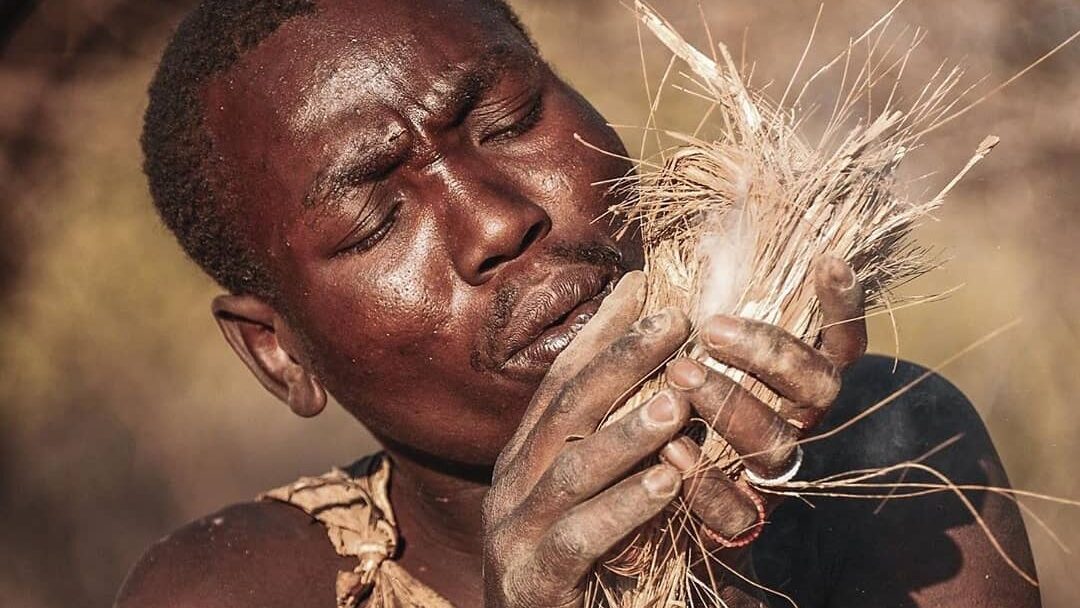
To witness a Hadzabe hunt is to witness a living heritage, a testament to human adaptability and the enduring relationship between people and the wild. It’s a far cry from the typical tourist experience, offering a profound and respectful immersion into a culture that has thrived in harmony with nature for millennia. It’s a “cultural game drive” in its truest sense, where the game is life itself, and the drive is a journey into the heart of a timeless tradition. With Hadza Guides Africa, this extraordinary encounter becomes a possibility, offering a perspective on the wild that goes far beyond the surface.

